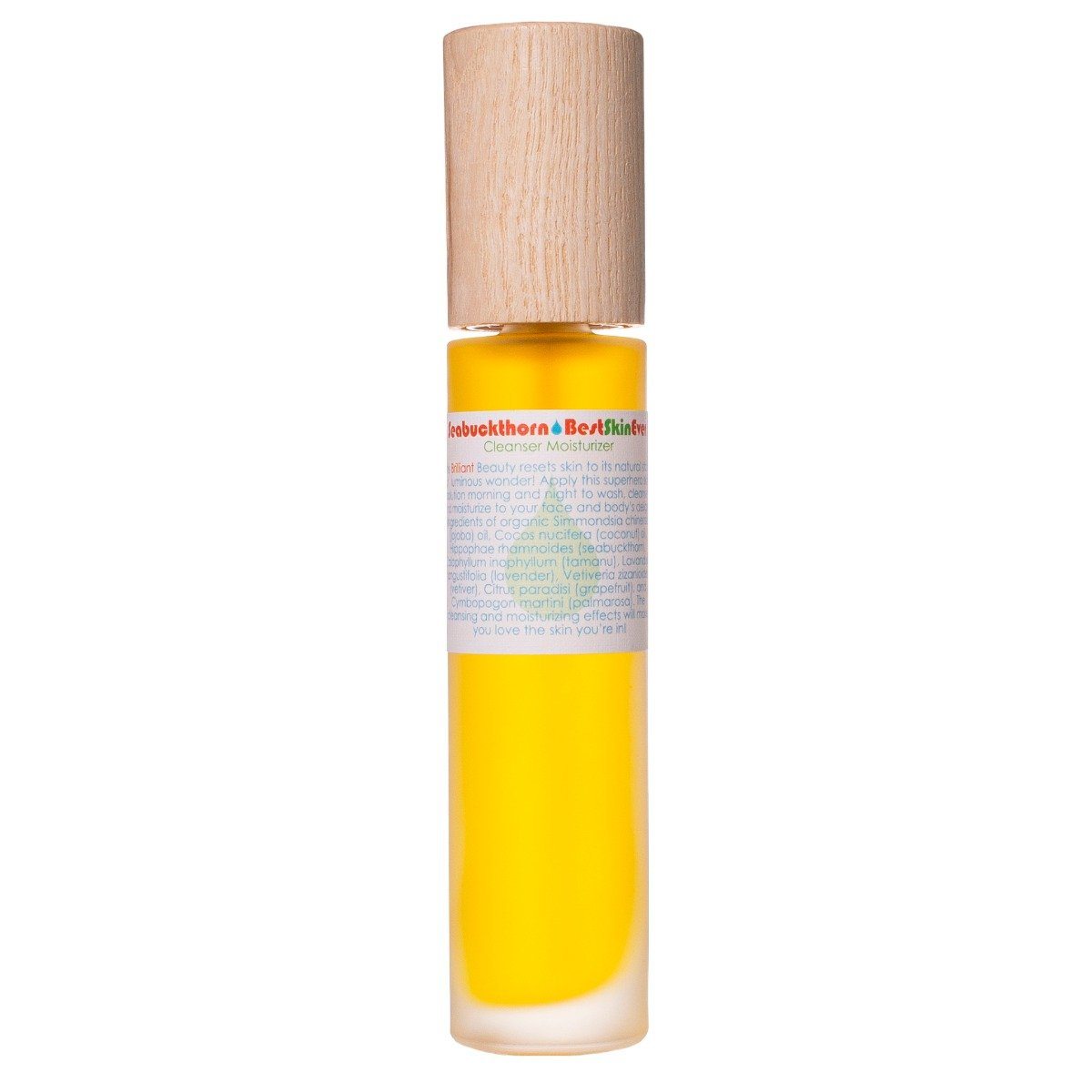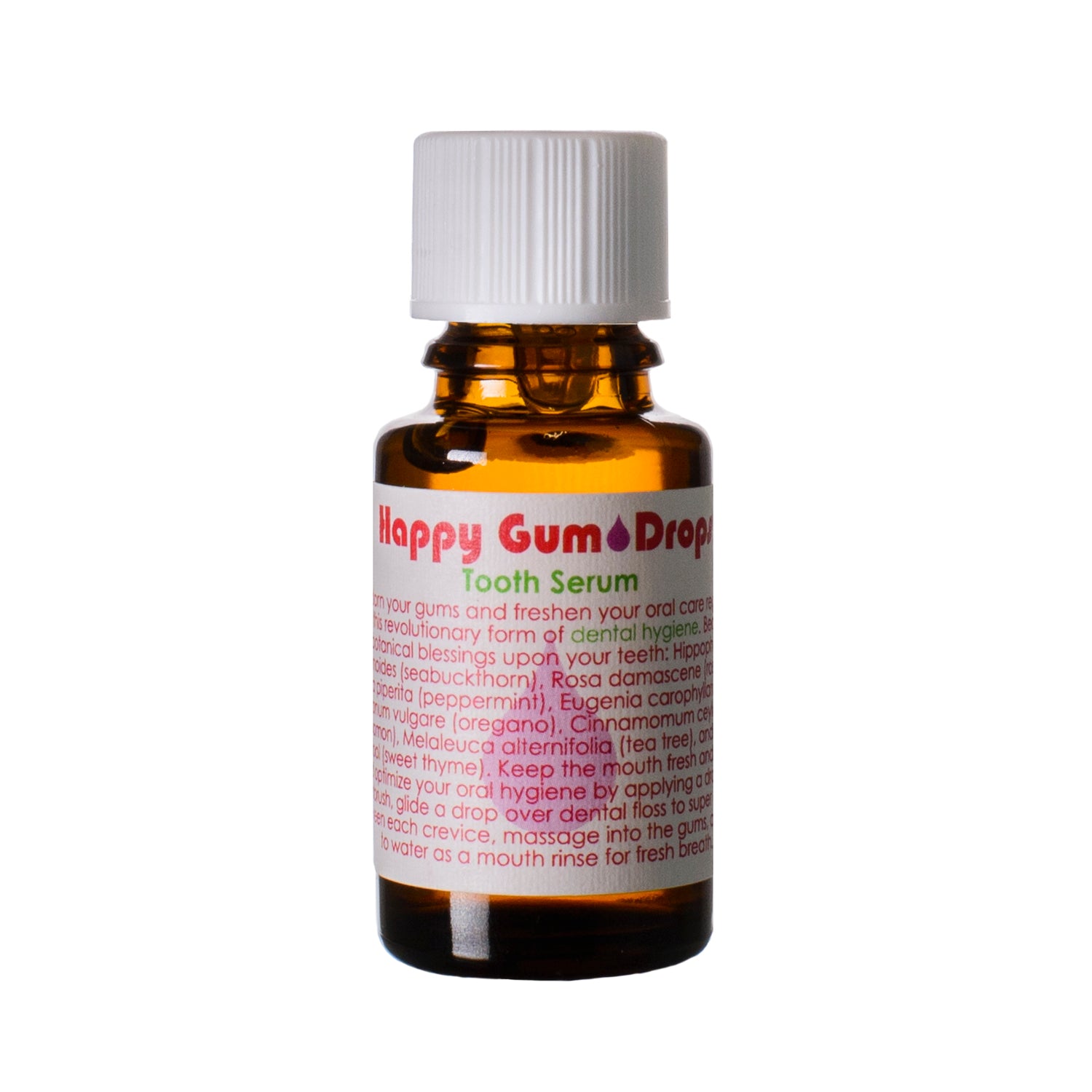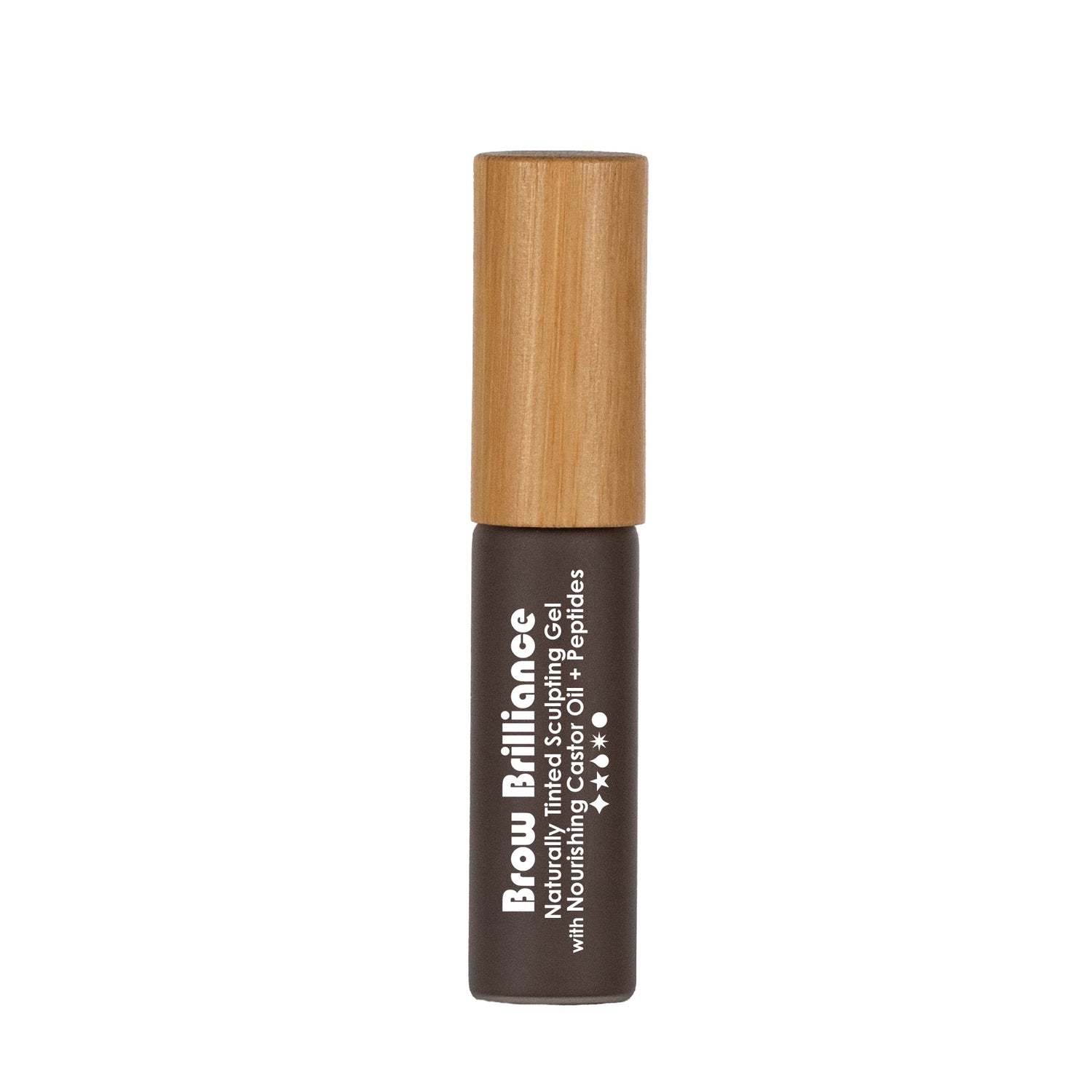Our Bacteria: Beauticians for Glowing Skin
Beauty was not simply something to behold; it was something one could do.
Toni Morrison[i]
Our skin, this moist envelope of our soul, is a living, breathing, and regenerating tissue. This miraculous medium is the real estate coveted by every cosmetic that aims to penetrate pores, solve insecurities, and systematize skin types. And yet, glowing, radiant skin evades so many.
Dry, oily, and combination skin, as well as common skin issues such as acne, blackheads, eczema, melasma, and premature aging and age spots are all manifestations of bacterial imbalance. Symptoms vary from subtle to severe, yet they all point toward skin microbial mismanagement.
Our skin is a tapestry teeming with microbes; we live our lives in perpetual bacterial bloom, a whole ecosystem resides on the surface and in the multilayers of our skin. Our cutaneous microbiome is in constant contact with the immune, digestive, nervous, and hormonal systems, and its disruption results in dysbiosis, which affects the healthy texture of the skin. The unfriendly microbes that cause imbalances live on everyone’s skin. Yet, when microbial diversity mutates and plummets, pathogenic bacteria breed and trigger skin issues. Our skin needs bacterial diversity to thrive and to keep the flora friendly instead of fostering the frenemies that cause disruption and disease.
Only a few millimeters of skin separate our bodies from the outside world, yet the skin’s multilayered design provides us with the perfect protection. There are four main levels in the very thin, top layer of our skin called the epidermis. First, the outermost layer, the stratum corneum, keeps skin elastic and prevents water evaporation. The second layer, the hydro-lipid barrier called the stratum granulosum, produces ceramides and phospholipids. The third layer, the immunologically active stratum spinosum, is a net-like layer that provides protection to the fourth layer, the stratum basale, which generates keratin and melanin cells and pushes them up to the outer stratum corneum every fourteen days.
The stratum corneum is composed mostly of dead cells, which has given rise to the practice of chemical peels and excessive exfoliation. Yet this vital layer is the topsoil that feeds our friendly flora. Cell loss is designed to precisely match cell production. Exfoliating cells away too quickly tips the balance and signals stress in the skin. Our epidermal bacterial ecosystem requires a healthy stratum corneum because it is our most anti-aging and anti-infection layer. When we remove it prematurely, the young skin cells underneath are left vulnerable.
With this juicy layer jeopardized, toxins and harsh chemicals irritate the new skin, inducing inflammatory issues. If this layer is disturbed regularly, as it is with daily exposure to synthetic cleansers and creams, it creates missing microbes, inflammation, abnormal cells, and easy entrance for toxins.
For decades we have known about the toxicity of modern toiletries and its effect on our skin, cells, and hormones. Now, revolutionary research about the skin’s microbiome reveals new levels of damage to our dermis that the daily doping of lotions and soaping is doing to the flora that support our skin. When the skin is injured, our native skin microbes invade the area to defend against nonnative pathogens, and this prevents infection. (This is a good reason to avoid antibacterial soap!) Bacteria also regulate skin collagen and protect the skin from UV damage.
Most modern skincare routines suppress the beauty of this symbiotic system. The bacteria domesticating our dermis are altered by what is applied topically. The daily rubbing and scrubbing of our skin with a diet of synthetic cleansers and creams fumigates our friendly flora. We disrupt the homeostasis when we remove protective bacteria and their food source of sebum, cells, and lipids.
Studies show that surfactants in cosmetics dissolve our skin’s natural ceramides, enzymes, and hydro-lipid barrier. These surfactants that make skin squeaky clean also insert themselves into the stratum corneum and stay there even after rinsing, initiating chronic degradation to this delicate layer.[ii] This creates a vicious cycle of dermal dysbiosis and premature skin conditions that are difficult to escape – redness, acne, melasma, dryness, and irritated skin.
These skin issues may send us seeking a dermatologist. Dermatology prescriptions are known to be steeped in side effects with low success rates of resolving skin aliments, and often spawn new ones. Among this arsenal are antibiotics, retinoids, and cortisone creams that deplete our bacteria teams. Restoring beneficial bacteria, rather than further depleting it, should be the key to all skin therapy.
For beauty’s sake, we must befriend our bacteria. Bacteria are the best beautician. By outsourcing our beauty routines, we let microbes micromanage our skincare with their beauty-stimulating secretions that clean pores, plump pores, and keep skin strong and supple. A healthy microbiome is your best friend forever and works like the best beauty cream ever!
Aside from Photoshop, the most beneficial way to achieve beautiful skin is to maintain a microbiome of beautifying bacteria by following these three steps: stop, seal, and seed.
Stop
Stop using synthetic cosmetics. Give your bathroom a makeover and set free the toxic bottles of empty promises that claimed to quick-fix or correct skin type and advertised active ingredients with hype. There is no need for synthetics to feel fresh and be clean.
Stop using soap on skin. Seriously, no foaming the face and body with soap, ever, except pits and bits. We also want to stop showering in chlorine that kills friendly flora. If municipal tap water is pouring from your faucets, use a shower filter.
And, stop applying questionable “natural” products. Just because there is an image of lavender fields on the label does not mean the bottle is full of intelligent ingredients. Rancidity, refinement, and hidden ingredients mean that not all “naturals” nourish the skin. Know your source and do your research.
Seal
After we have stepped away from the bottles of synthetics we can bring in a bevy of botanicals. Plants are cosmic chemists, endlessly assembling the molecules of the world, and we live by the grace of this assembly. It is the life force of this plant perfection that we want to mix and meld with our microbiome.
Plant tissues are made up of cells that produce lipids and aromatic essences. These secretions are pressed and steamed from cells within the plant’s cells to produce botanical extracts. These oily secretions work synergistically with our cells and befriend our microbes.
The next step in sealing the skin is to repair the hydro-lipid barrier by washing with pure plant oils. It may seem strange, washing with oils, yet it is one of the top things that will turn your skin around. People think that oil will leave their skin feeling oily and less than clean, though this isn’t the case when organic, authentic, fresh-pressed botanical oils are used.
Pure, organic oils, such as the gorgeous golden jojoba in all of our Best Skin Evers, is made of loving lipids that lubricate the skin so that makeup and dirt are gently whisked away and the hydro-lipid barrier is left intact. In fact, cleansing with these oils also stabilizes our beneficial skin bacteria and enhances protection from pathogenic bacteria. Soothing serums of seabuckthorn and jojoba deliver skin-loving phospholipids and balance the biome to keep cells perfectly plump. When nature provides such exquisite and effective elements to graciously attend to our skin, we must see the use of synthetic cleansers as the definition of insanity.
Not all oils are created equally, though. There are many “natural” oils that will never go near my skin! Grapeseed, peach kernel, sunflower, and almond oils are often rancid and ineffective right off the shelf.
Can you find another market like this?
Where, with your one rose
you can buy hundreds of rose gardens?
Where, for one seed you get a whole wilderness?
~ Rumi, The Seed Market
Seed
The third step is to reseed the skin and the guts with beneficial bacteria. The skin and the guts are inexplicably bound, and both healthy skin and healthy guts are lined with billions of beneficial microbes. Gut bacterial imbalance results in chronic inflammation that can diminish collagen and contribute to rapid aging. Research indicates that a flourishing body-wide microbiome, boosted by oral probiotics to help reintroduce some missing microbe species to improve diversity, can help skin be less sensitive to UV rays, prevent cell abnormality, regulate collagen production, and more!
Topical Application
When applied topically, probiotics provide bacterial balance to the skin, which prevents harmful bacteria from predominating and creating an inflammatory immune response. Friendly flora naturally produces antimicrobial peptides (AMPs) that gently prevent bacterial infections, and these precious secretions are invulnerable to antibiotic resistance. AMPs improve healing and day to day skin health by encouraging cell growth and proliferation in addition to protecting the skin from infection.
Beyond ingesting probiotics, topically applied probiotics rebuilds microbial diversity that has been depleted by common skincare chemicals, balances the biome of the epidermal layers, boosts the skin’s innate immunity, strengthens the stratum corneum and lipid layers, nourishes and maintains the acid mantle, increases natural ceramide and lipid production, harmonizes the skin to receive the sun’s rays, balances the sebaceous glands, alleviates fungal and bacterial rashes, assists in healing scars and wounds, and supports collagen synthesis.[iii] Probiotics perfect the skin’s performance in processing environmental factors, such as wind, cold and heat, over-exposure to the sun, free-radicals, toxins, and pollution. This is especially effective at calming flare-ups of acne, spots, rosacea, eczema, premature aging, redness, and all inflammatory conditions.
Simply stated, applying live microorganisms pumps up the skin’s natural defenses for a smooth, even, and healthy complexion. With all these benefits, methods to deliver probiotics to the dermis are in scientific and medical development. Yet, we don’t have to wait! Simply open a Brilliant Biotic capsule, add it to a wholesome skin serum or honey mask, and apply.
Living Libations Brilliant Biotics is a truly gluten-free probiotic bustling with 50 billion Colony Forming Units (CFUs) grown on an inulin prebiotic in lieu of corn or dairy. This special formulation for both oral and topical use delivers probiotic bacteriotherapy for optimal whole body health and beauty.
Nothing understands what healthy skin needs more than intelligent bacteria. No chemical-cream will ever desire vitality for you more than a thriving microbiome. Bless your bacterial diversity and replenish your beauty with bacteria-friendly botanicals, and then revel in the perfection you were born with.
Renegade Beauty Brilliant Biotics Solutions
If we’re going to heal, let it be glorious.
~ Beyoncé[iv]
Tips and tricks to beautifying with botanical biotics and brilliant probiotics.
SKIN SEED MASK
Combine spring water or diluted apple cider vinegar (50:50 with water) until desired consistency. Apply to skin dampened with water or with Frankincense Face Tonic or Rose Glow Complexion Mist, which would be perfect for this. Leave it on for an hour or so.
1 tablespoon clay
3 Brilliant Biotic capsules (powder)
½ teaspoon of honey, Frankincense Honey Mask, or Royal Rose Honey Mask
2 drops Carrot Seed Essential Oil
2 drops Immortelle Essential Oil
1 drop Sweet Thyme Essential Oil
SEED SAVIOUR
SPOT MASK for ACNE + BLEMISHES
Mix this mini-mask in the palm of clean hands and dab mixture onto spots, blemishes, and pimples and leave on overnight.
1-2 Brilliant Biotic capsules (powder)
1 drop Frankincense Essential Oil
1 drop Sweet Thyme Essential Oil
Optional: one pinch of Rosemary Reset Mask
NOSE ROSE OIL
This probiotic nose balm tends to the inner sanctum of your nasal microbiome. Perfect for jet-sets, polyps, dry winter noses, or simply tending to your nasal garden. Add essential oil drops to a 15ml bottle of jojoba and shake in one Brilliant Biotic capsule.
1 Brilliant Biotic capsule (powder)
15 ml Jojoba
10 drops Frankincense Essential Oil
6 drops Rose Otto Essential Oil
5 drops Blue Tansy Essential Oil
2 drops of Peppermint Essential Oil
FRANKINCENSE FRIENDLY FLORA DEODORANT
Melt cacao butter, coconut oil, and beeswax over low heat. Stir in the baking soda and essential oils. Let the mixture cool until thickened yet not hard, and add the probiotic powder. Stir well. Pour into a glass jar to harden. You need only one or two swipes.
35 ml Cacao Butter
10 ml Coconut Oil
5 ml Beeswax
10 ml Baking Soda
20 drops Frankincense
10 drops Vetiver
2 Brilliant Biotics capsules (powder)
DASHING DRY SHAMPOO
Mix, jar, and apply a dash to your scalp and part lines to extend times between washings.
15 ml Baking Soda
5 ml Rosehips powder
6 drops Chamomile Essential Oil
6 drops Ylang Essential Oil
1 Brilliant Biotic capsule (powder)
___
Nadine Artemis, the founder of Living Libations, is the author of Holistic Dental Care: The Complete Guide to Healthy Teeth and Gums, and Renegade Beauty: Reveal and Revive Your Natural Radiance, which was named one of “The Top 10 Books on Skin Care” by The Strategist of New York Magazine. She is a respected media guest and contributor, and her products have received rave reviews in the New York Times, LA Times, Elle, People, Vogue, and Hollywood Reporter. Described by Alanis Morissette as “a true-sense visionary,” Nadine crafts elegant formulations and healing creations from rare botanicals that have skin glowing around the world. Her concept of Renegade Beauty encourages effortlessness and inspires people to rethink conventional notions of beauty and wellness.
[i] Toni Morrison, The Bluest Eye (New York: Vintage, 2007), 176.
[ii] Russel M. Walters, Guangru Mao, Euen T. Gunn, and Sidney Hornby, “Cleansing Formulations That Respect Skin Barrier Integrity,” Dermatology Research and Practice, 2012: 495917, www.ncbi.nlm.nih.gov/pmc/articles/PMC3425021/.
[iii] Reactive skin: Audrey Guéniche, Philippe Bastien, Jean Marc Ovigne, Michel Kermici, Guy Courchay, Veronique Chevalier, Lionel Breton, and Isabelle Castiel-Higounenc, “Bifidobacterium longum Lysate, a New Ingredient for Reactive Skin,” Experimental Dermatology 19, no. 8 (August 2010): e1–e8, http://onlinelibrary.wiley.com/doi/10.1111/j.1600-0625.2009.00932.x/full?refreshCitedByCounter=true.Acne: Whitney P. Bowe and Alan C. Logan, “Acne Vulgaris, Probiotics and the Gut-Brain-Skin Axis—Back to the Future?” Gut Pathogens 3, no. 1 (2011), https://gutpathogens.biomedcentral.com/articles/10.1186/1757-4749-3-1.Inflammation: Teruaki Nakatsuji et al., “Dermatological Therapy by Topical Application of Non-Pathogenic Bacteria,” Journal of Investigative Dermatology 134, no. 1 (January 2014): 11–14, www.jidonline.org/article/S0022-202X(15)36443-5/fulltext.Barrier function: Benedetta Cinque, Cristina La Torre, Esterina Melchiorre, Giuseppe Marchesani, Giovanni Zoccali, Paola Palumbo, Luisa Di Marzio, Alessandra Masci, and Luciana Mosca, “Use of Probiotics for Dermal Applications,” Probiotics, vol. 21 of the series Microbiology Monographs, June 2011: 221–241, https://link.springer.com/chapter/10.1007/978-3-642-20838-6_9.Collagen, aging, and the sun: H. M. Kim, D. E. Lee, S. D. Park, Y. T. Kim, Y. J. Kim, J. W. Jeong, S. S. Jang, Y. T. Ahn, J. H. Sim, C. S. Huh, D. K. Chung, and J. H. Lee, “Oral Administration of Lactobacillus plantarum HY7714 Protects Hairless Mouse against Ultraviolet B-Induced Photoaging,” Journal of Microbiology and Biotechnology 24, no. 11 (November 28, 2014): 1583–1591.
[iv] Beyoncé, 2017 Grammy performance.



